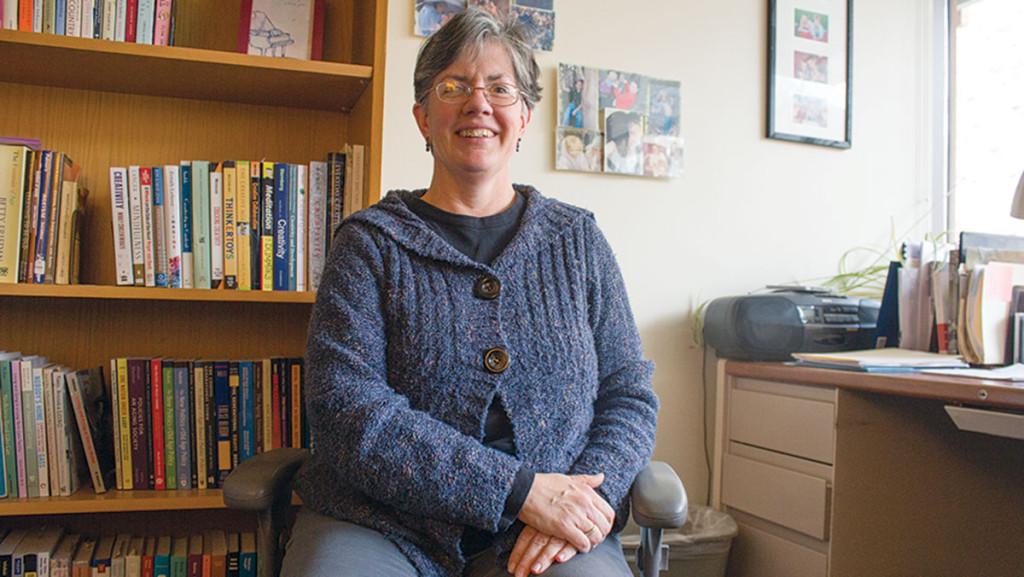Young adults in the U.S. are used to looking forward to certain ages. Younger teens are eager to turn 16 and start driving. Seventeen-year-olds who turn 18 are recognized as adults. Many college students celebrate turning 21 and being able to drink alcohol legally. But what do you look forward to beyond 21? For most Ithaca College students, there may be some concrete next steps, with perhaps vague ideas of career and family further in the future, but after 21 there are few real age markers to aim for.
Some students at the college see age differently. They are engaged in learning about aging and interacting with elders through courses and volunteer opportunities. They are asking and answering questions about the possibilities and challenges of reaching ages 60, 80 or 100. The college offers a number of aging-related courses through the Gerontology Institute and other departments; a unique partnership with Longview, a nearby senior housing facility; and great volunteer opportunities through student clubs like the Aging & Gerontologic Education Society and Project Generations.
Why should busy college students seek out aging-related courses or volunteer opportunities? First, because all current students can anticipate someday being an elder themselves. How many of us can understand how the choices we make today might affect us 40 or 50 years from now?
Personally, I wish I could impress on every student at the college the importance of pensions so that, in their first job, they make the tough choice to put money away for their future. Students in Aging and Social Policy learn that Americans are increasingly on their own when it comes to retirement income, so we all need to start early.
Second, almost all students are connected to elders in their families. Many students speak to me about the inspirational elders who are already in their lives, many of whom have Facebook pages and busy social schedules. Many students’ lives have also been touched by age-related challenges like Alzheimer’s disease and caring for frail elders. Understanding these opportunities and challenges can help us be resources for our own families. My own increasing understanding of aging helped me to be a resource for my mother after my father passed away and she moved away from her home of 40 years to a new life here in Ithaca.
Third, most students’ future careers will include interacting with elders — as bosses, co-workers, patients, clients, etc. Greater numbers of elders in the U.S. and in other countries translates into opportunities for those who understand the needs and desires of this population.
Finally, the real reason to seek out elders in your life is because it’s fun. Older people have a different perspective on life and love having a chance to interact with young people. They have faced their own challenges over their lifetime and have wisdom to share. Seek out courses and clubs that will offer you this chance to look forward to life well beyond age 21.
Mary Ann Erickson is chair of the Gerontology Institute. Email her at [email protected].














